How long should you let a dehumidifier run? Experts reveal the sweet spot to combat damp in your home
The answer might surprise you

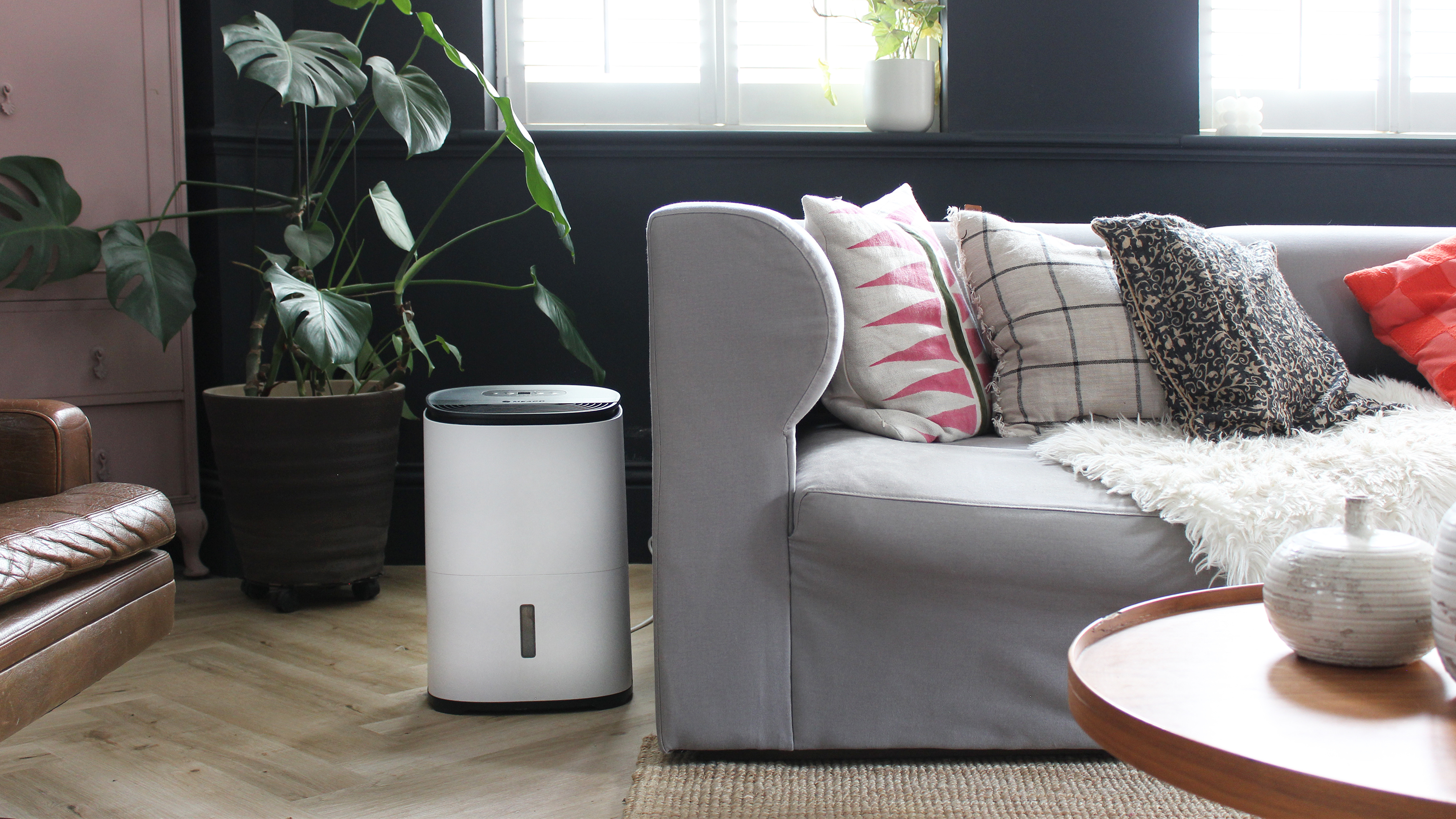
Sign up to our newsletter for style inspiration, real homes, project and garden advice and shopping know-how
You are now subscribed
Your newsletter sign-up was successful
How long should you let a dehumidifier run? The age-old question that never fails to spark debate in a household. We're sure we all have different opinions about how long you can keep this must-have household appliance running – both from a necessity and energy-saving point of view.
At this point, we're sure that the best dehumidifiers require no introduction. Although we might be welcoming the onset of springtime, the UK weather doesn't always seem to get the memo, meaning wet and rainy days are still regrettably in our midst. Thankfully, snapping up a dehumidifier is a surefire way to combat and tackle the task of getting rid of damp in your home.
Although we've learned that you can leave a dehumidifier on overnight, just how long can you keep it running throughout day-to-day life?
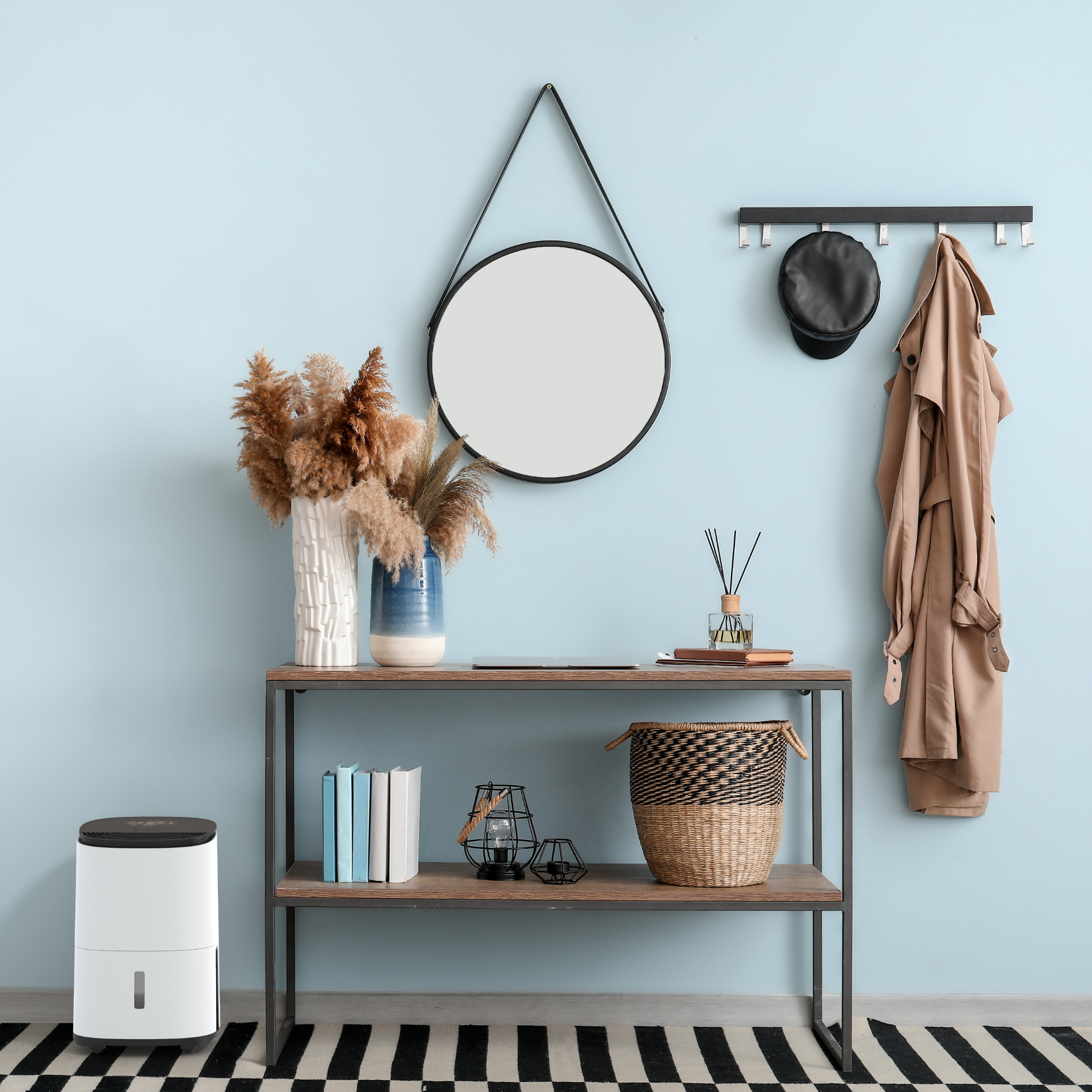
How long should you let a dehumidifier run?
'The length of time to utilise an appliance such as a dehumidifier simply depends on the task in hand, and every area of dampness is different,' begins James Longley, managing director at Utility Bidder. 'The end goal is ultimately to maintain a lower humidity and prevent dampness in the process.'
In short: the worse your humidity problem, the longer you're going to want to keep your dehumidifier on. This means no 'set' time would be classed as right or wrong as it's all on a case-by-case basis.
'If the room humidity is above 70% then you should keep it going to prevent mould. If it is below that, then it doesn't matter how long you run it for,' explains Ian Palmer-Smith, appliance repair expert at Domestic & General.
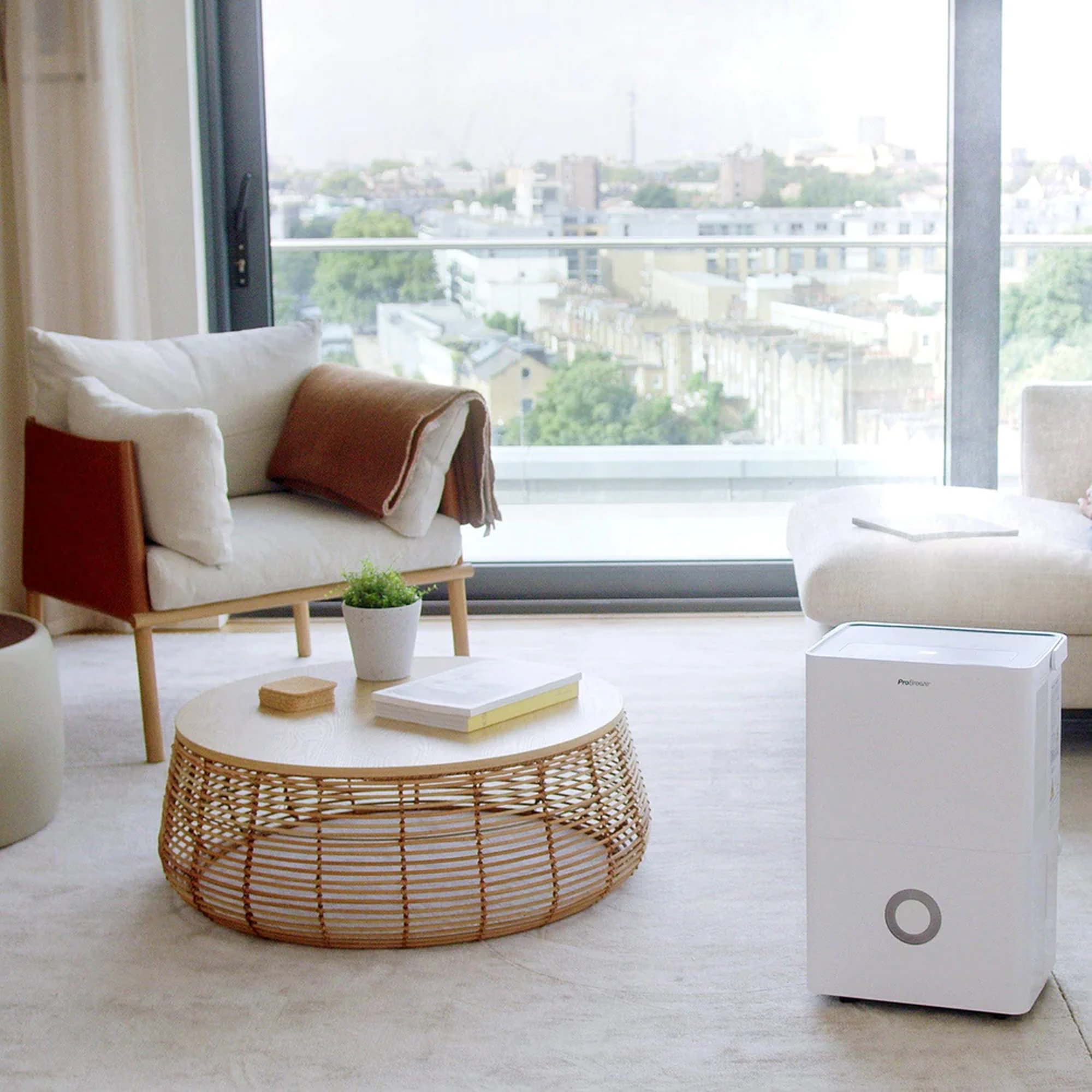
That's right. It might seem a little surprising, but it's true. Should you need further confirmation, Chris Michael, managing director at Meaco adds, 'If the dehumidifier never seems to switch off and is still collecting water, the answer is to leave it running.' That being said, not letting it run for long enough is a common dehumidifier mistake people often make.
Sign up to our newsletter for style inspiration, real homes, project and garden advice and shopping know-how
'Modern dehumidifiers have a built-in humidistat that measures the temperature and relative humidity of the room and tells the dehumidifier whether to sleep or dehumidify,' he further explains.
What's more, if you're buying a dehumidifier and using one in your house for the first time, Chris prefaces that it will be 'running flat out for around two to four weeks while it dries out all of the air in the house' as well as having to account for the moisture being released in the air naturally through showering, cooking, drying clothes indoors, etc.

Only once has it caught up and brought things under control you will find your dehumidifier will turn off, allowing you to settle into a cycle of turning it on and off as required. Therefore, so long as require the use of a dehumidifier to dry out damp walls or need a dehumidifier to dry clothes, for example, then you simply keep it running until the problem subsides.
If you're worried about safety, Chris assures us that the way a dehumidifier works is very similar to a kitchen fridge – and as you know, these appliances are always running 24/7 with no cause for concern.
'Dehumidifiers switch off automatically if the target humidity is met or if the water tank is full. Switching them off prematurely stops them from doing the job intended and costs more electricity in the long run,' he explains.
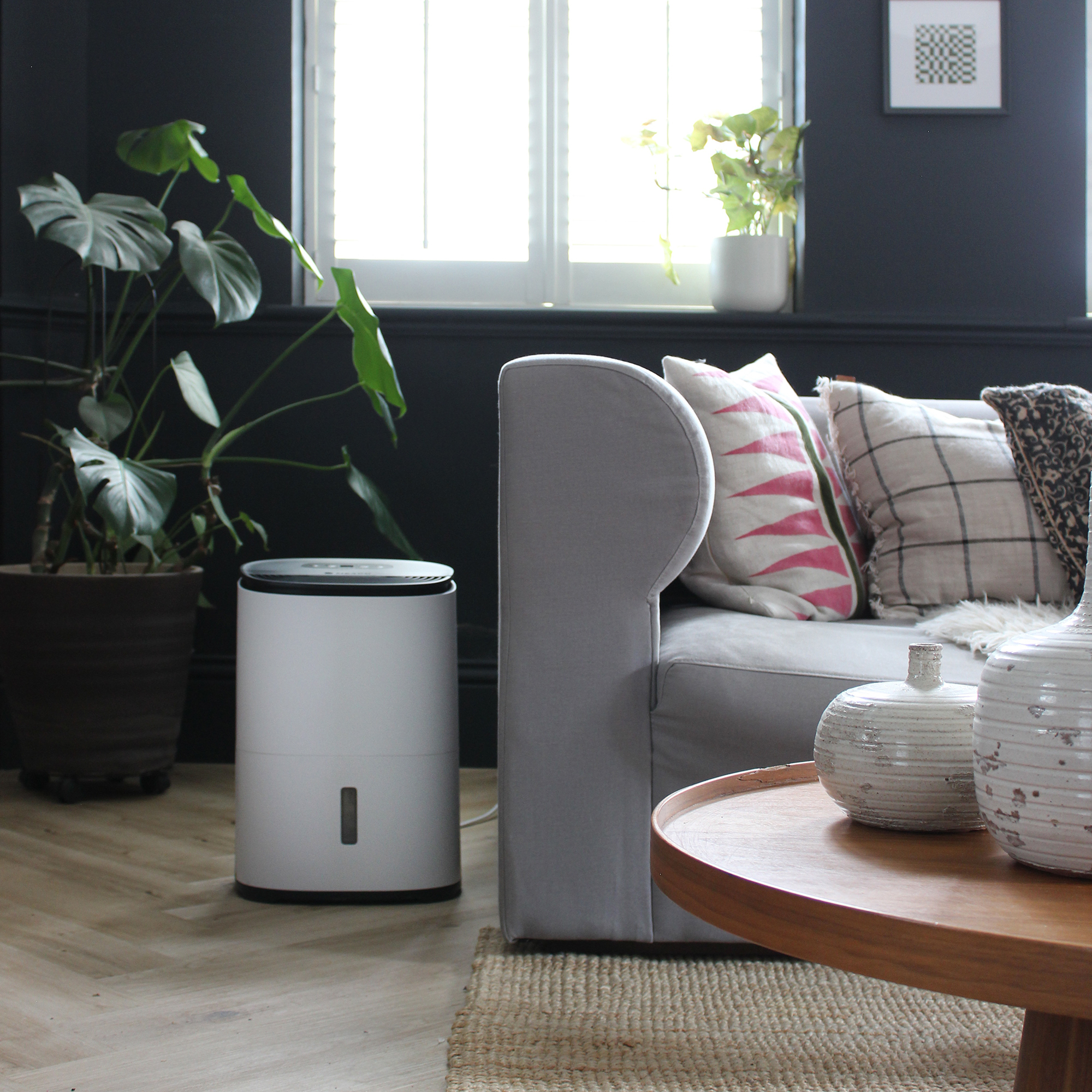
Although how long you let your dehumidifier run will depend on a handful of factors including the room size, current humidity levels, and the size of your dehumidifier, James recommends keeping it running between 6-12 hours in a day.
This will ensure you don't continually hike up the cost of running a dehumidifier as well as allow you to assess its effectiveness throughout the day, letting you make an informed decision on whether it needs to keep running or can rest.
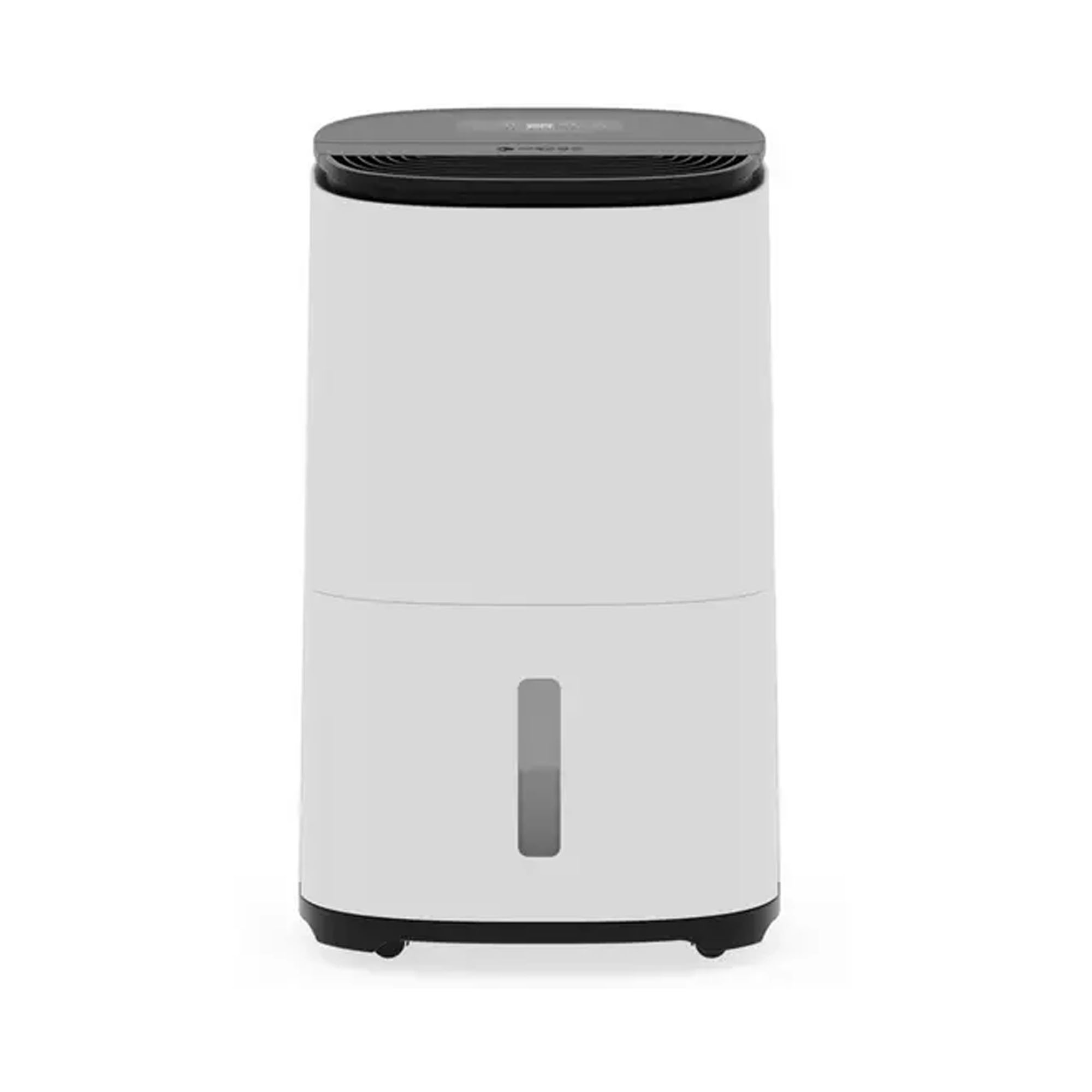
The MeacoDry Arete One is quiet, easy to use, and very energy-efficient compared to other compressor dehumidifiers. It also works a treat for drying clothes indoors. It's no wonder it's the best dehumidifier we've tested.
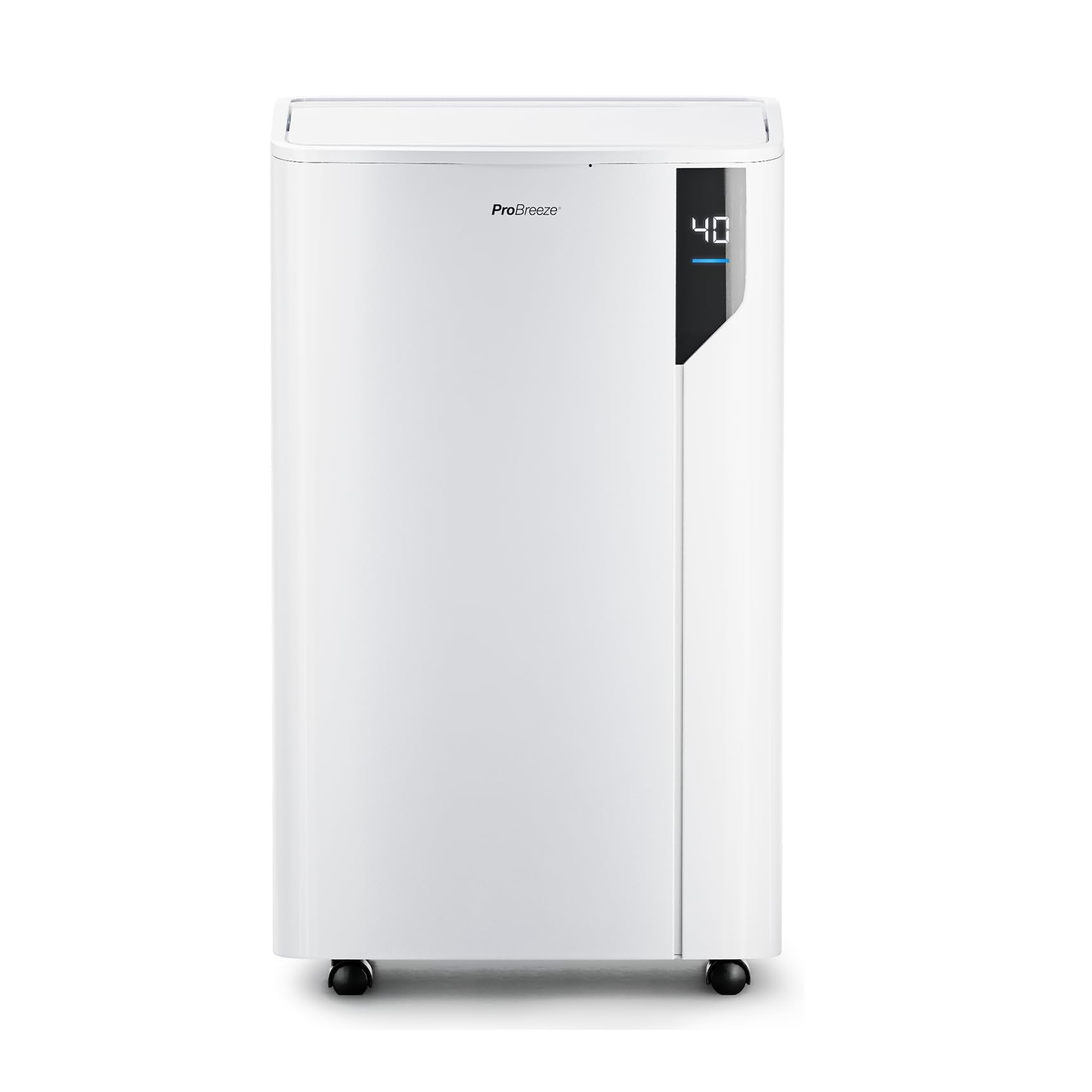
Although we don't think it can quite beat the MeacoDry Arete One on overall performance, Pro Breeze's 20L Premium Dehumidifier with Special Laundry Mode is the best dehumidifier we've tested for drying clothes, should that be your top sought-out feature.
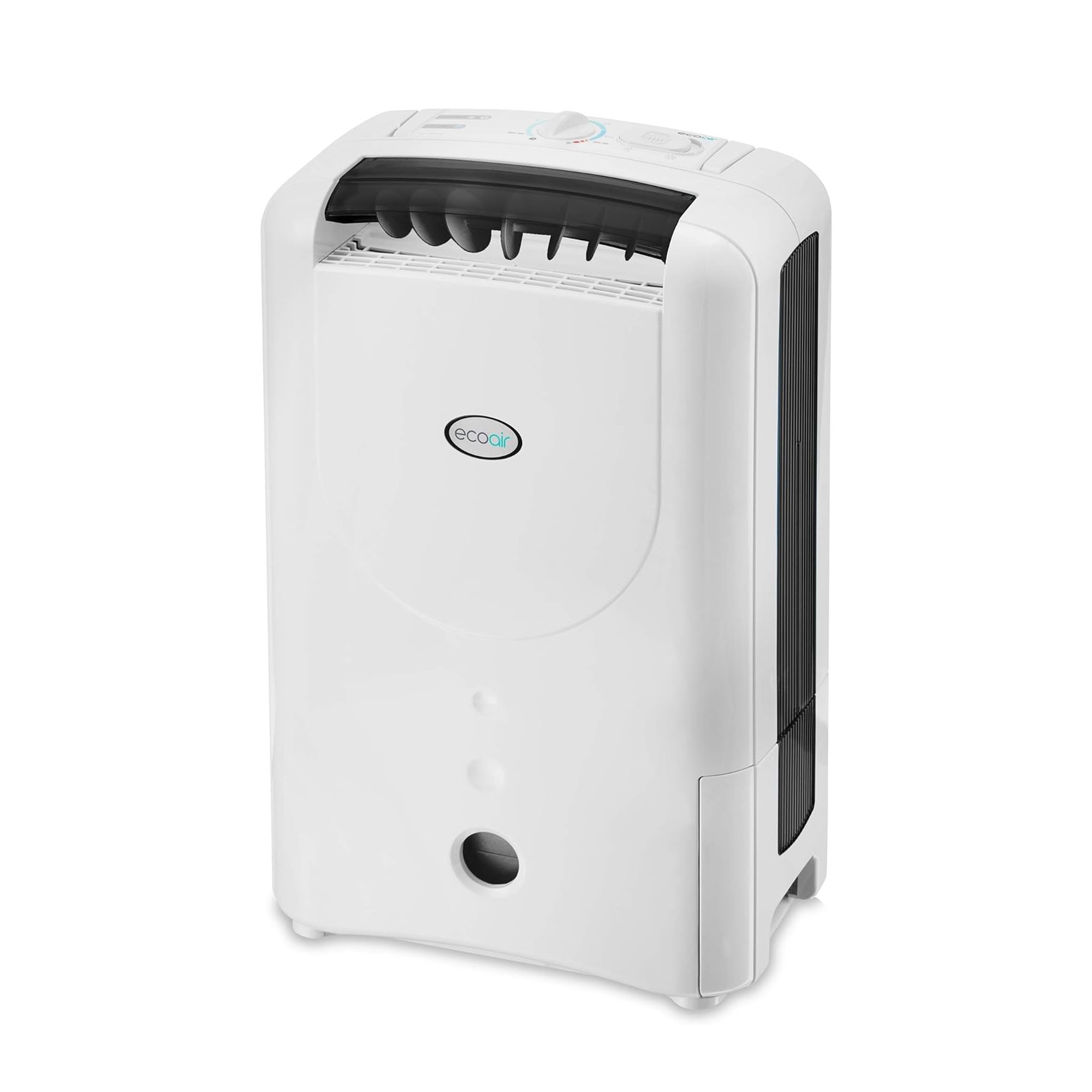
The EcoAir DD1 Simple MK3 can be operated in any space that's above 1°C, making it a great pickup for the likes of a garage, basement, conservatory, or unheated room during the colder winter months – including a chilly utility room.
FAQs
How long should you run a dehumidifier after a leak?
After a leak, it's important to keep a dehumidifier running as long as you possibly can. 'If you have an excess humidity problem in your home (continually 60%+ without dehumidifier), then chances are you're going to need to keep your dehumidifier running for at least 12 hours a day, for it to keep the humidity levels down,' advises Nicholas Auckland, energy expert at Trade Radiators.
'Some may choose to have it running 24 hours a day, as this will provide the most benefits and keep it down all day and all night. However, this will use energy and the dehumidifier could be distracting when sleeping.'
As Meaco's Chris Michael revealed to us earlier, so long as the dehumidifier is still collecting water and doesn't switch off, the best practice is to keep it running as it will automatically turn off.
Can I run a dehumidifier all day?
'In damp rooms, it is safe to use a dehumidifier continuously. It should then automatically shut off once the tank is full,' assures Katie Holland, marketing manager at Russell Hobbs. 'However, we would always recommend that people only operate dehumidifiers for 8 hours at a time when doing tasks such as drying laundry.'
'It's also important not to leave a dehumidifier on unattended when you leave the house.'
How often should you run a dehumidifier?
You should run a dehumidifier as often as you need it. Most new dehumidifier models will have a built-in humidistat that will measure the relative humidity levels in the room and will switch on and off as necessary.
The last thing you want is to leave a dehumidifier running for too long past its necessity, as this can result not only in wasting electricity but can also run the risk of overdrying a room. After all, balance is key.

Jullia was Ideal Home’s Junior Writer from 2022-2024 and the Ideal Home Certified Expert in Training on Vacuums having spent over 60 hours testing different models. She’s always loved all things homes and interiors, graduating with a bachelor’s degree in Architectural Studies from the University of Nottingham where her love for writing blossomed following her internship at ArchDaily. Now focused on home tech and cleaning, Jullia works on writing features and explainers to help people make the most of their home appliance investments, putting the newest launches through their paces. When she isn’t writing, she loves exploring the city, coffee shop hopping, and losing hours to a cosy game or book.